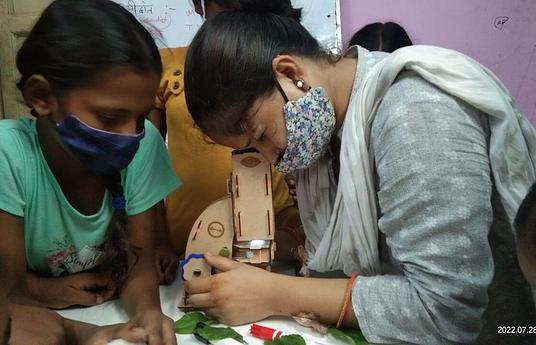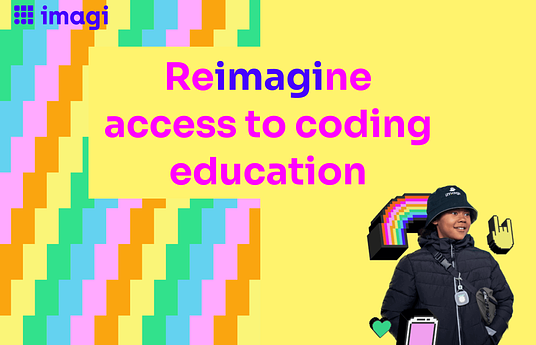Not only does it pave the way for increasing gender equity, but it can also be a powerful climate solution as it empowers girls and advances her reproductive health and rights, fosters girls’ climate leadership, and develops girls' green skills.
We have made progress in pushing forward girls’ education - primary and secondary school enrollment rates are getting closer to equal (90% male, 89% female) globally.
However, there is still work to be done:
- Completion rates for girls are still lower in low-income countries with only 36% of girls completing lower secondary school compared to 44% of boys
- There is still a gender gap in labour force participation, with gender bias still stifling girls’ ambitions
- Violence is still a factor in preventing girls from gaining access and completing their education - approximately 60 million girls are sexually assaulted on their way to or at school every year
What are some organisations spearheading the way in supporting girls’ education? Protsahan Girls Champion Program, PadHer, Educate Girls, imagi, and Technovation are making a difference by increasing access to quality education for girls and empowering girls in underrepresented fields such as STEM and technology.
Supporting girls at risk of sexual and gender based violence (SGBV)
In urban slums of India, there is a deep rooted system of oppression and violence against girls, preventing them from accessing education, healthcare, and equitable economic opportunities. Protsahan Girls Champion Program works in urban slum communities to identify children who are at high risk of abuse and violence and provide them with the support they need.
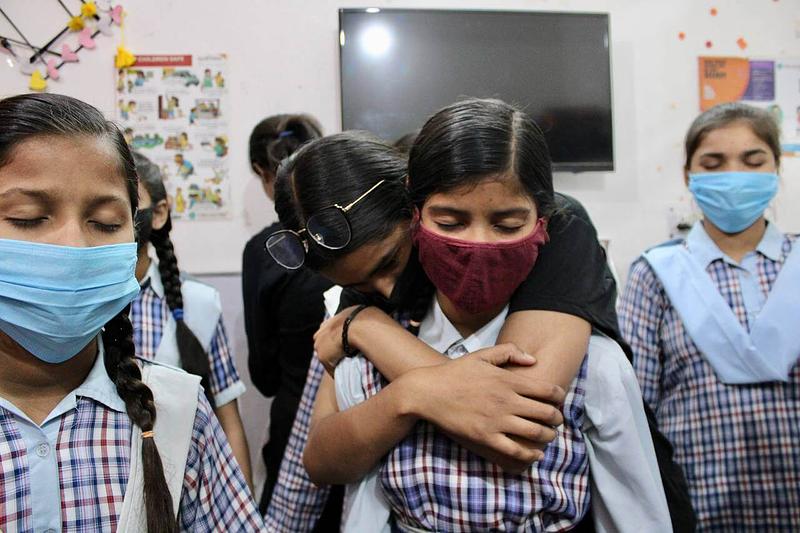
Protsahan Girls Champion Program
On a tangible level, they ensure that every girl is enrolled in school where she gets access to a mid-day meal and all necessary school materials. Girls experiencing or at risk of SGBV need “special comprehensive social services, care & counselling, and quality learning in a trauma-informed safe space, which enables her to reach her fullest potential and find a pathway out of intergenerational poverty & violence towards healing & empowerment,” explains Mallika Sinha from Protsahan India Foundation.
"For us, the smallest daily intervention is an opportunity for healing– a hug, a conversation, psychosocial counselling sessions, meditation at the beginning of every day or an ‘art as therapy’ class."
Protsahan’s HEART Model takes a holistic approach - including physical, mental, material and emotional wellbeing to support survivors of sexual and gender based violence.
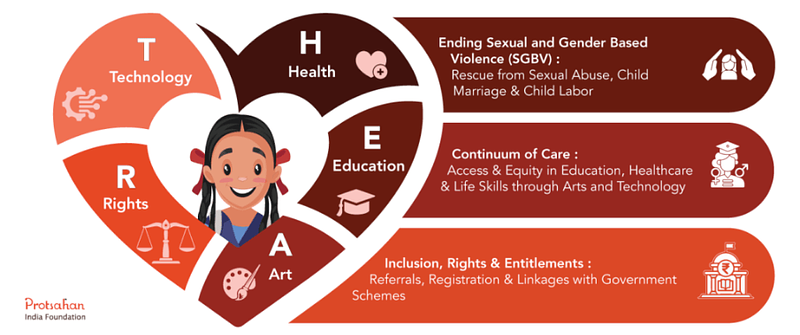
Protsahan's HEART Model
“In our well-being work, we create safe spaces and individualised support for the girls that enable them to tackle the complex grief and trauma caused by gender violence, structural inequity, and social marginalisation, especially through art. For us, the smallest daily intervention is an opportunity for healing– a hug, a conversation, psychosocial counselling sessions, meditation at the beginning of every day or an ‘art as therapy’ class," shares Mallika Sinha.
Enrolling out of school girls
Educate Girls takes a similar approach, mobilising community volunteers to identify, enrol, and retain out-of-school girls and improve foundational skills in literacy and numeracy. They work with 18,000 village-based volunteers, young, passionate, educated youth who are guided by the motto “My Village, My Problem, I Am the Solution”. Together, they form Team Balika, which means a team for the girl child.
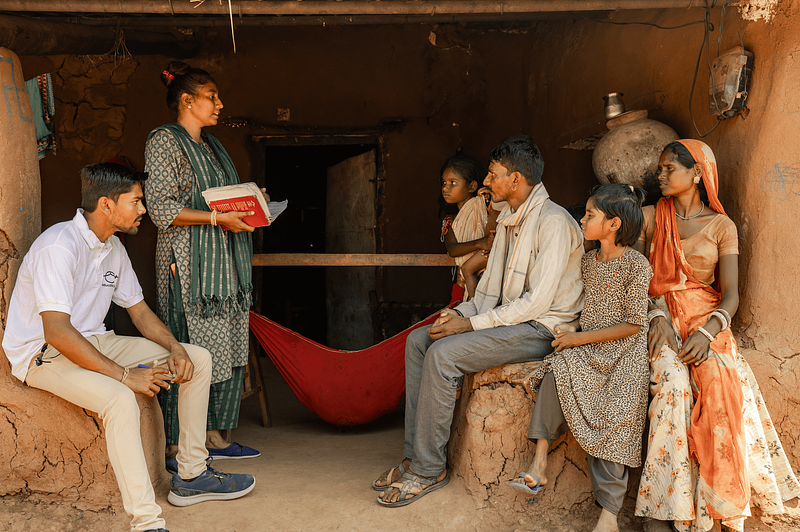
Educate Girls volunteers conducting door-to-door surveys
Educate Girls trains and mentors these volunteers so that they can do their best to support girls in their village. “They act as gender champions of their village, conducting door-to-door surveys, convincing families, mobilising girls for enrolment in the nearest government school, and strengthening their foundational literacy and numeracy skills,” explains Vikram Singh Solanki, Head - Field Operations, Educate Girls.
“[Volunteers] act as gender champions of their village, conducting door-to-door surveys, convincing families, mobilising girls for enrolment in the nearest government school, and strengthening their foundational literacy and numeracy skills”
Once they enrol girls in school, they work hard to ensure that she stays in school and learns well. “To create a conducive learning environment for our girls, we work with the School Management Committees (SMCs) to ensure basic, girl-friendly infrastructure like separate toilets for girls, boundary walls and clean drinking water, addressing fundamental needs that contribute to their continued school attendance. These approaches have yielded significant results, with a remarkable 93% retention rate since our inception,” says Vikram.
Period education to keep girls in schools
1/10 girls in Africa miss school during their periods to avoid the embarrassment of bleeding through their uniforms, and many drop out of school when they begin menstruating.
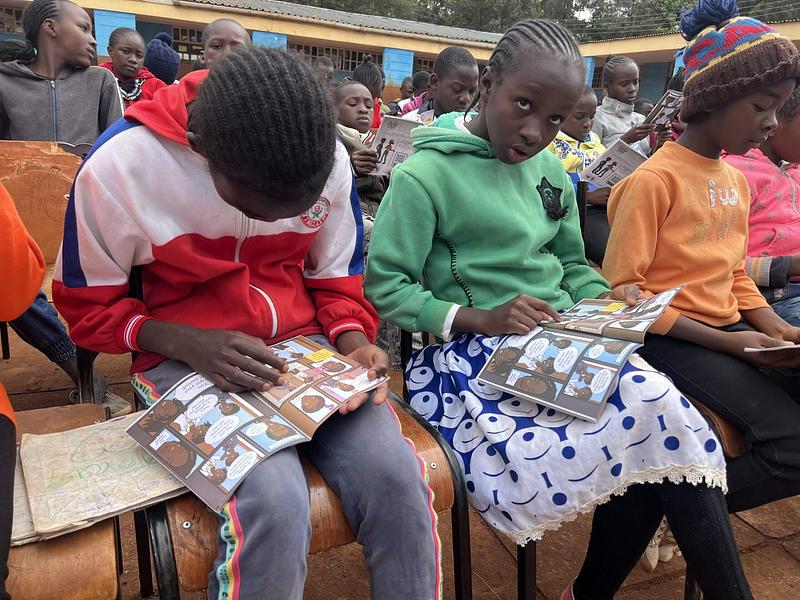
One solution, identified by PadHer, is to provide free period education to African girls in underserved communities. “Period education is a critical tool in keeping girls in school by providing them with the knowledge and resources to manage menstruation with confidence and dignity. When girls understand their bodies and have access to menstrual hygiene products, they are less likely to miss school due to period-related challenges,” explains Chika Nwaogu, Founder of PadHer.
“When girls understand their bodies and have access to menstrual hygiene products, they are less likely to miss school due to period-related challenges”
PadHer makes it easy and fun to teach young African girls about periods and puberty through comic books. “PadHer's comic books have been instrumental in keeping girls in school by addressing taboos surrounding menstruation and providing accurate information in an engaging and culturally sensitive way. Through relatable storytelling and empowering messages, PadHer's comics empower young girls to overcome period-related barriers and prioritise their education.”
Empowering girls through STEM education
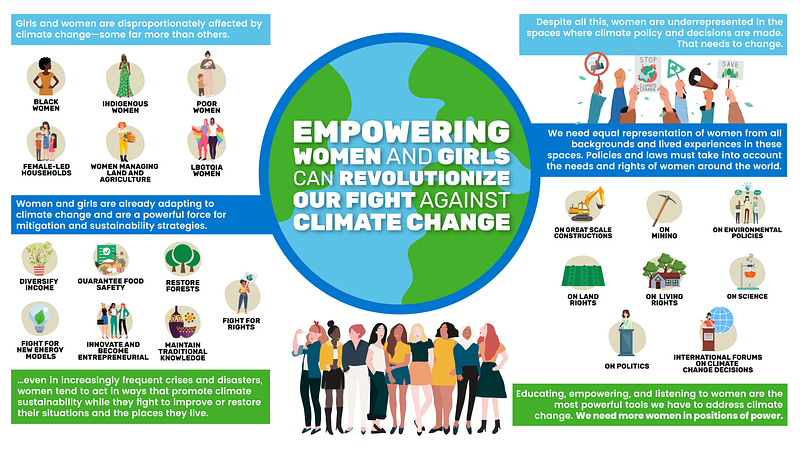
Source: World Economic Forum, “5 reasons why empowering women and girls can revolutionise the fight against climate change“
Technovation sees girls' education as a powerful tool for fighting against climate change. Technovation uses a grassroots approach to empower underserved communities, especially girls and women, to address local problems through technology. Through their 12-week technology-entrepreneurship curriculum, participants develop problem solving, collaboration, metacognition and complex systems-thinking skills while working to solve meaningful community problems.
Through their Technovation Girls programme, they have observed that the top two issues addressed by girls are health and the environment. Girls have developed hundreds of climate solutions through the Technovation Girls programme, such as mobile apps to fight climate change.
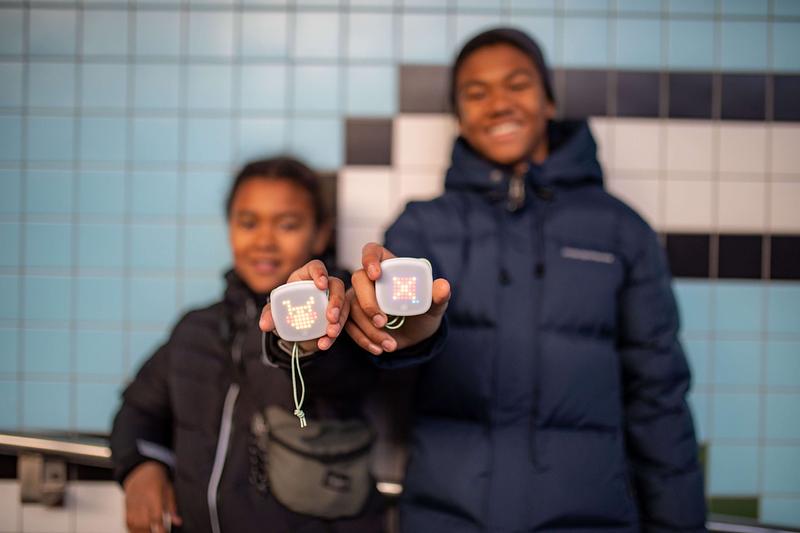
Students with imagiCharm
Imagi has found a fun, creative way to attract girls and non-binary youth to be more engaged in learning coding. Imagi tools teaches Python to 8-14+ year olds by teaching students how to create colourful pixel designs that they can bring to life with the imagiCharm - a customisable and wearable gadget. And this approach has been effective! 32% of girls & non binary children express an increased interest in coding after completing 12 levels in the imagi coding game.
“This 7th grade girl didn't think that she could be a 'coder' and now she loves it.” -Teacher from American Community School Abu Dhabi
This International Women’s Day, let’s celebrate the progress we have made towards gender equality and women’s empowerment. At the same time, we hope that others draw inspiration from these innovations to continue to push for increased support for girls’ education.
If you are working on something to improve education, we want to hear from you! Share your innovation with us.
.jpg)
